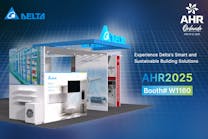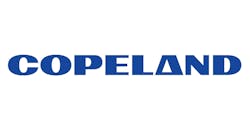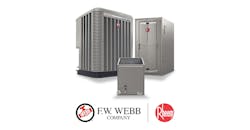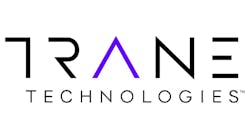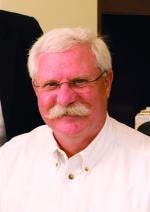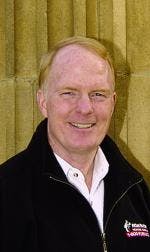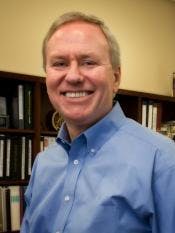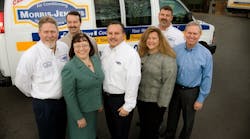Growth is usually the result of smart business planning, but sometimes fate plays a role, too. “We are growing, in part, because of the brilliant management strategy of locating our business in Texas in 1966,” says Steve Saunders, CEO, Tempo Partners, Irving, TX. The company was Contracting Business.com’s Residential Contractor of the Yearin 2003.
Saunders may be humble, but he’s not naive. He’s basing his latest plans for growth on some time-proven strategies, such as opening up new markets and seeing opportunities where others don’t. But, he’s also aware that the world’s changing rapidly, and companies that ignore that, do so at their own peril.
How Will You React to Events?
Saunders relates that he recently read a book by Nassim Nicholas Taleb called, “The Black Swan: The Impact of the Highly Improbable.” A black swan is an event, positive or negative, that is deemed improbable yet causes massive consequences. Examples would be 9/11, the Internet, Google, the iPhone, and so on. Things are going to happen — both good and bad — that you just can’t predict, and companies need to be prepared for volatility.
“The stable world of 1945 to 1975, of building a five-year plan and then grinding away, is gone,” Saunders says. “The world that exists is a world of turbulence and variability. So that’s the world we’re building our business for, and I think people who don’t are going to find themselves vulnerable on the inevitable downswings.”
Setting Green Distinctions
Tempo Partners is preparing to grow in this new world by promoting distinct businesses related to green services, energy, and HVAC. The company now encompasses three entities: Tempo Mechanical, Inc., U.S. Eco Logic, Inc., and TexEnergy Solutions, Inc. The businesses are all interrelated: they’re all about buildings, envelopes, and mechanical systems. Taken together, they allow the company to see business opportunities where other people don’t. As an example, Saunders cites the desire for increased energy efficiency in the residential new construction market, which would be handled by his company’s Tempo Mechanical Division.
“There’s a lot of frustration in the marketplace because the general perception is that the Energy Star for Homes Version 3 guidelines are too difficult and too expensive,” Saunders says. “We agree that it is more difficult and costs more to do. But we also think it adds value, so we decided to be the company that delivers it very well. In the process, we have become, for many builders, the preferred contractor to deliver Energy Star Version 3 and all types of HVAC for high performance homes. It costs more, we sell it for more, we make more, and we deliver better value. What’s not to like?”
Institutions, Plumbing Added
Another growth area for Tempo has been the addition of institutional clients. “It’s kind of a running joke over the past few years that when it comes to service revenues ‘flat’ is the new ‘up,’” Saunders says. “But we have actually managed to grow our service revenues by adding institutional clients. That, in turn, helps grow our equipment changeout business.”
In addition, Tempo Partners started a plumbing service business in the summer of 2012. The plumbing business is expected to help even out the company’s revenues, given the summer-intensive cyclic nature of the HVAC work. It ultimately may also serve as a significant revenue generator.
“We think in future years our plumbing business will have a huge impact on our ability to acquire customers, provide holistic services, level out the ups and downs of the service business and keep our people busy all year,” Saunders says.
Finally, Tempo is paving the way for growth by upgrading the company’s communication and IT infrastructure, and providing all field personnel with wireless devices that will replace the company’s old paper-based system. Read more about Tempo here. and here.
Strategic Response to Tough Times
Unlike Saunders, Randy Seaman, president, Seaman’s Mechanical, Grand Rapids, MI, didn’t have the luxury of operating in a state that was spared the brunt of the recession. The economy has been very tough in Michigan, and Seaman’s — Contracting Business.com’s 2006 Commercial Contractor of the Year— stands as an example that growth isn’t always necessarily going to be linear from year to year. Sometimes it’s necessary to take difficult steps and downsize to set the stage for future growth.
“When the economy started to go downhill, we lost many of our smaller industrial clients,” Seaman says. “They downsized or went out of business. In turn, we had to begin making some small cuts, such as cuts in benefits, our 401k match, and so on. As the recession dragged on we had to make some deeper cuts, including some layoffs, because of lack of work.”
Sustained by Service, Reputation
It was a difficult time for Seaman, but he was pragmatic about it: you can’t bounce back from an economic downturn unless you stay in business through it. And he learned several valuable lessons about growth in a difficult economy. The first is the value of having a strong service department.
“Our service department stayed relatively flat. It didn’t grow but it didn’t decline, either, so it kind of held us afloat for a few years,” Seaman says.
Another lesson to ensure growth despite economic hard times is to guard your company’s reputation. Although cuts may need to be made, don’t cut so deeply that the quality of your work is jeopardized.
“You don’t want to give up your reputation for short-term survival,” Seaman says. “Cut expenses in small ways if you must, but don’t cut so deeply that you diminish your core values. You can’t grow yourself out of that. We made cuts when we had to, but we always protected our standards and now that the economy is picking up a bit, we’re seeing a lot of customers return to us. They always liked our service, our workmanship, and our designs, and they’re seeking us out. They’re saying, ‘Now that we can afford your level of quality, we want you back.’”
Investing in Employees When Time is Right
Finally, a key element in growth is communication with your employees and a willingness to reinvest in them when business improves.
“We had to lay some people off, and some people left, but the employees who stayed with us understood what was going on with the economy, and had faith. I’m very thankful for that,” Seaman says. “That’s why it’s so important to keep your people informed. Let them know what’s going on every step of the way, so that they know why you’re doing what you’re doing. If you have the backing of your team you can get through a lot.
“And, as soon as things start to improve, start investing in your company and your people again,” Seaman continues.
“Bring some of the benefits back. Start buying new trucks or new tools. Employees know when the economy is going bad, but they also know when things are starting to turn around. Keep your people in the loop and start reinvesting in them as soon as possible.”
Thanks to what he calls a “balancing act” over the past few years, Seaman feels that his company is now again poised for growth. “We have targeted some new markets and the economy starting to turn around a little bit,” he says. “We’re here and we’re ready. We feel there’s a lot of great stuff coming.” Read more about Seaman’s online, at bit.ly/seamanscoy — Ron Rajecki
Residential Add-ons, Local PR
Mark Swepston, president, Atlas-Butler of Columbus, OH — the 2007 Contracting Business.com Residential Contractor of the Year,” has added home-based services.
“We’ve gotten into insulation and home performance, and they’re doing very well, primarily due to the support of the utilities,” Swepston says. “Gas rates are one half of what they were 10 years ago, and with fracking becoming a big thing in Ohio, the idea of saving money on gas bills is not as big a motive.”
Training continues at Atlas-Butler. “Our Atlas Butler Academy is in its 10th year and going strong, and we revised our website,” he says, to keep up with consumers’ inclinations to do homework before dialing the phone.
Swepston says local outreach to students has also improved. The focal point is a student recognition program.
“Our Atlas Butler Student Awardsprogram recognizes students for their involvement in the community,” he says. Atlas Butler is celebrating 90 years of service by recognizing high school students in central Ohio who make the effort to better themselves and their community. With a short description of their hard work and an “A” in one subject, these students could win a $250 cash prize and a lunch party for their classroom, and be eligible to win a portion of $20,000 in scholarships. Read more about Atlas-Butler online, by clicking here.
People First: Recruiting, Training & Social Media
Always adept at finding new talent and providing continuing education, the team at Morris-Jenkins — the Contracting Business.com 2009 Residential HVAC Contractor of the Year— is putting even more emphasis on recruiting and training.
“We’ve had a full time trainer for years. Our maintenance techs receive an intensive eight week course of classroom and field training,” explains president Dewey Jenkins.
“Our experienced technicians receive weekly training on new products and developments, as well as refreshers on the basics."
Jenkins describes social media as an “amazing and challenging” phenomenon, but one that must be used carefully.
“This is where people meet and communicate today. The challenge is in determining how to be there while not offending everyone with your presence,” Jenkins says.
“Our strategy for social media is relationship building with current and new customers. We almost never post anything about a sale or special offers. We use Facebook, Twitter and YouTube on a regular basis.”
Efficiency Upgrades for Existing Buildings
Kevin Marquardt, president, Pacific West Industries, Inc., Anaheim, CA, achieved a lifelong career goal when he started his company in 2005, after many years with two major manufacturers, and a commercial HVAC contractor. "It was something I wanted from Day 1," he says.
Pacific West Industries specializes in light to heavy commercial projects, and is always in step with the newest technological innovations. One very successful strategy that will continue into 2013 is improving the performance of existing buildings.
“We tend to go after Design/Build retrofit work, taking on an older building and retrofitting it to newer equipment and technology; getting rid of pneumatic and mechanical controls, and updating them to direct digital controls (DDC), variable speed drives, to improve temperature and humidity,” he explains.
“Managing energy” is how Marquardt describes Pacific West Industries’ driving force: finding strategies to slow down equipment during peak usage times.
“We’ll slightly overcool a building before noon, and then slow the system down during peak demand charges. We’ve seen huge benefits from doing that,” he says. That reasonable run time strategy has been especially helpful for the company’s museum sites and commercial office buildings.
“Museum managers especially will tend to think the air conditioning must be running on full, 24-hours-a-day. We’ve shown that we can maintain temperature and humidity by cycling the equipment more efficiently,” Marquardt shares. “Variable speed drives on fans, pumps and chillers have provided a huge money savings. It’s usually a high up-front cost, but it tends to pay back quickly.”
Water temperature monitoring is another energy saving routine at Pacific West Industries.
“We monitor air handlers and provide the air handlers with only the chilled water temperature that’s required,” Marquardt explains. “We’re not constantly putting out 45F water. We vary the water temperature from the demand of the air handlers. We’ve proven we can vary the temperature and still handle the load.”
To increase efficiency, Pacific West Industries’ field technicians use iPads for service reports, and send information to the office in real time. This eliminates a week-long wait for paperwork to arrive at the office.
— Terry McIver


